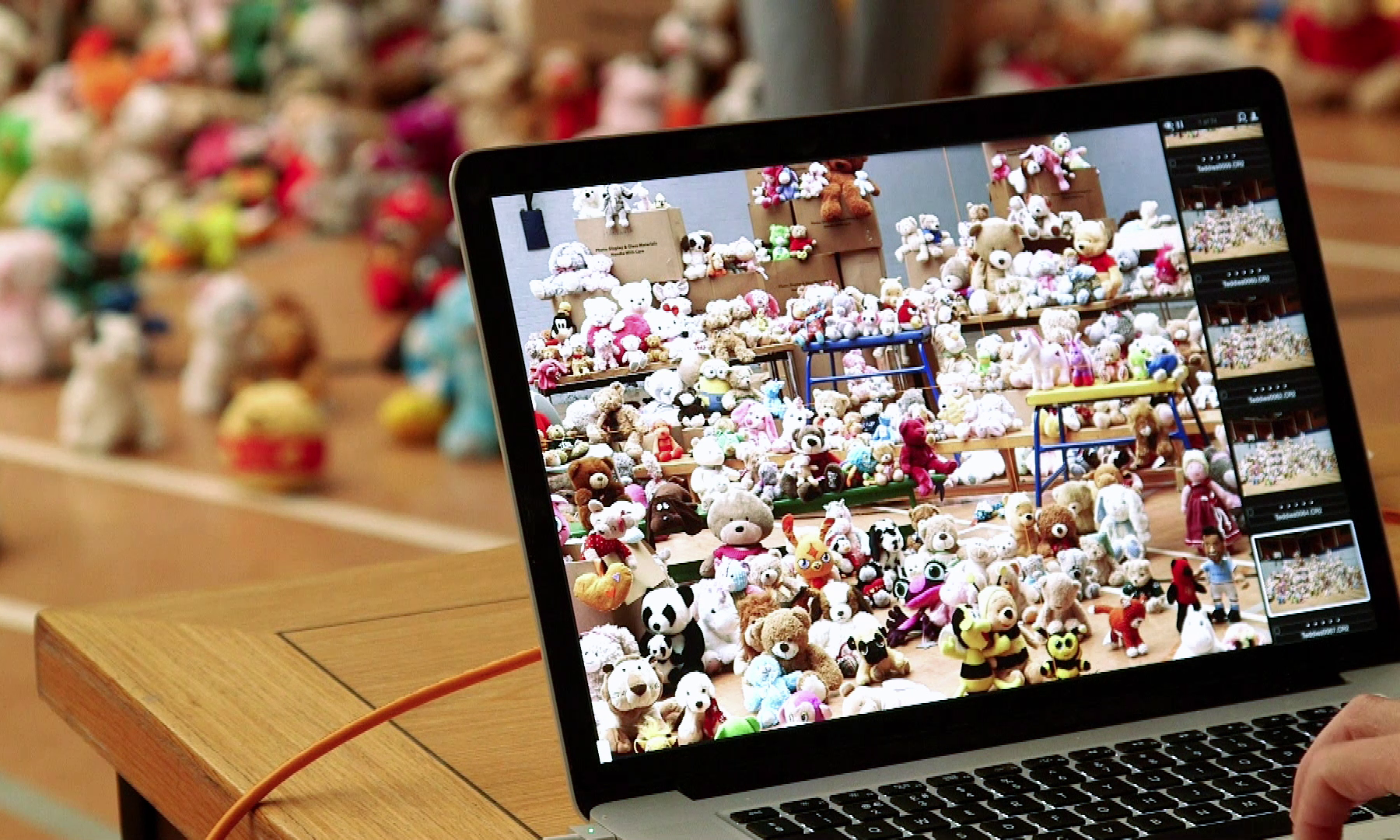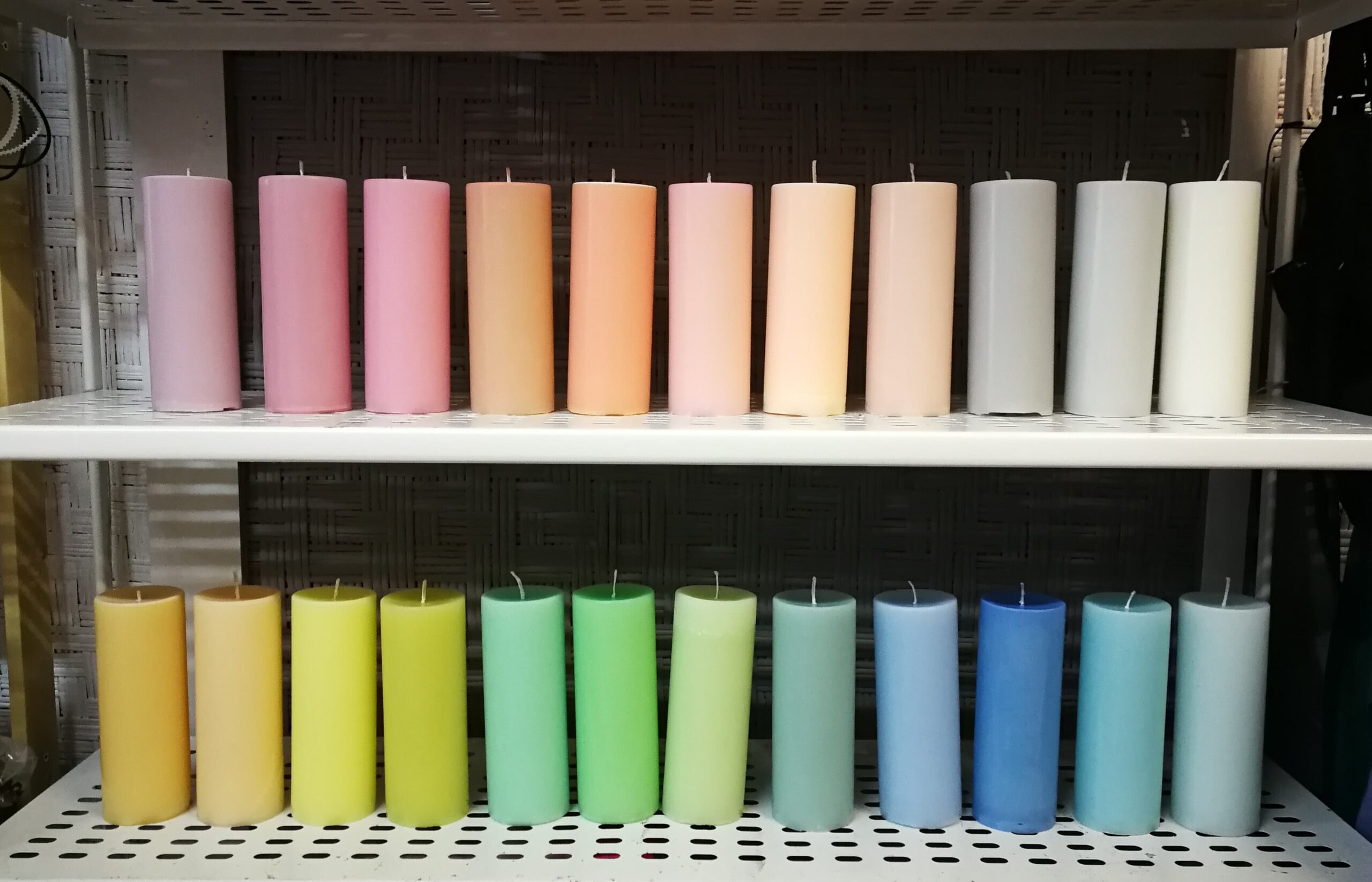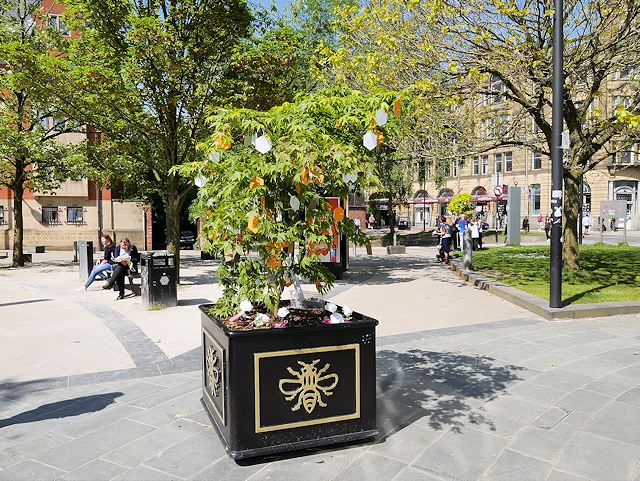Timeline
A timeline of events and some of the actions taken by the Manchester Together Archive since the Manchester Arena bombing on 22 May 2017
Manchester Arena Bombing
Suicide bombing at the end of an Ariana Grande concert kills 22 people and injures hundreds.
Spontaneous memorials appear
Public begin to leave flowers, candles, and notes at St. Ann’s Square and around Manchester.

Vigil held in Albert Square, Manchester
Thousands gather to stand together in honour of the victims. The vigil included a minute’s silence, which concluded with the now-famous sponatenous singing of Oasis’s ‘Don’t Look Back in Anger’.
One Love Manchester concert
Oragnised collaboratively between Ariana Grande, the city of Manchester and the British Red Cross, the concert’s primary purpose was to raise money for the victims and families affected by the Arena bombing and to stage a show of solidarity and togetherness in the face of terrorism.
Collection work begins.
The sensitive removal of all objects from the spontaneous memorial sites was led by the City Council and Manchester Art Gallery. The collection was taken to a disused fire station near to Manchester Piccadilly for temporary storage.

Deciding what to keep and what to dispose
Unable to determine a strong selection criteria to distinguish between the objects that should be kept and the ones that should be disposed of, the decision was made to send everything away for restoration.

Restoration work
Harwell Restoration Services collected everything salvaged from St Ann’s square. The collection was returned in December 2017. All work was done free of charge.
2,000 Teddies
Volunteers from the Women’s Institute helped clean and restore thousands of soft toys collected from the memorial sites. In December 2017, these soft toys were donated to various children’s charities. The whole process was documented in the film “2,000 Teddies”.

The MTA acquires storage space
A basement space in Manchester Art Gallery was fitted out with archive cabinets and drawers, as well as sofas and coffee tables. This space, which became home to the MTA, was designed to be dual purpose – as both a working archive and a place of contemplation and reflection, where family members could come and remember their loved ones.

22 Candles
Thousands of candles were lit to remember the victims of the Manchester Arena attack. One year later, artist Maja Piechocka was invited by Manchester Art Gallery to turn some of these tributes into 22 larger candles, one for each person who died in the attack. These candles were lit in the anniversary memorial ceremony in Manchester Cathedral in May 2018.

Trees of Hope
The Trees of Hope is a tribute trail created by Manchester City Council to commemorate the first anniversary of the Manchester Arena bombing. It involved planting 28 Japanese maple trees in planters along a route from Victoria Station to St. Ann’s Square. The soil used included compost made from the floral tributes left at memorial sites after the attack.

Workshop: Creating, Documenting and Using Archives of Spontaneous Memorials
This 2-day international workshop, funded by the British Academy, brought together practitioners, researchers and organisations involved in archiving and studying recent and past spontaneous memorials. It created opportunities to share experiences and discuss conceptual, practical and ethical challenges in archiving spontaneous memorials

The MTA recruits project coordinator and digital archivist, Jenny Marsden
Jenny helped establish a clear strategy for cataloguing the collection and went on to manage the volunteers recruited on the project.
Volunteer groups help with cataloguing items
Experiences of working with volunteer groups were documented in Jenny Marsden’s report “Providing emotional support for archive volunteers: Methods used on the Manchester Together Archive project”.

AHRC funding awarded for collaboartive PhD project
This PhD research examined notions of social solidarity and community resilience following public atrocities, and how communities tackle grief and trauma through acts of memorialisation. Dr Robert Simpson completed his PhD in June 2025.
A Museology of Trauma
This AHRC funded project set out to provide a comprehensive, international study of the conceptual, practical, and ethical issues that the collection, documentation, digitisation and curation of spontaneous memorials after traumatic events present to museums and other cultural and heritage organisations.
Workshop: Working with spontaneous memorials: Reflecting on practice and co-designing guidance
This 2-day international workshop created opportunities for practitioners and researchers to share and reflect on the experiences of working with spontaneous memorial collections and to discuss the scope of creating specific guidance and resources for those working with such collections.

Conference: Spontaneous Memorials – Contemporary perspectives on their sociocultural, psychological and organisational impact
This two-day international conference brought together researchers, practitioners, artists and musicians. The conference sought to reflect and build on the growing body of research and practice surrounding spontaneous memorials and invited discussions around ongoing and emerging issues and debates on the sociocultural, psychological and organisational impact of spontaneous memorials.

PLAN-CARE-HEAL officially launches
After several months of creating resources and designing webpages, the PLAN-CARE-HEAL framework was officially launched. Despite some outstanding tasks and an ever-growing wishlist of things to add, the website launched at the Memory Studies Association 2025 annual conference in Prague. This online guide will continue to grow and be added to over time, to reflect the people who use it. So, if you have feedback for us or would like to make suggestions about resources we could include, please get in touch with us via the Contact page.
